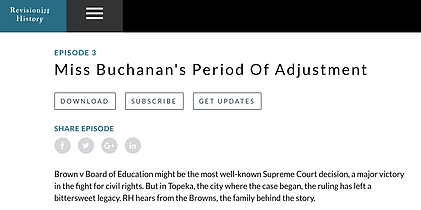School Diversity and the Incredible Benefits of Educators of Color
"They made one serious mistake (in Brown vs. Board). They made students do the integration. they should have had teachers first."
- Celestine Porter
"Having even one black teacher between the 3rd and 5th grade reduced the chance that an African-American boy would drop out of high school. By how much? 39%. Just one teacher."
Click below to listen and discover the deep connection between the great need for educators of color and school integration.
Click below to listen and discover the deep connection between the great need for educators of color and school integration.
The IMPACT of Teacher Evaluation on Educators of Color
Although children of color are now a majority of public students, there is a relative lack of diversity among educators. As late as 2011, the percentage of public school teachers of color was less than 20% (Feistritzer, 2011). A 2014 study, entitled “The State of Teacher Diversity in American Education,” revealed that the number of black teachers in nine large American cities has significantly dropped during the past decade. Washington, D.C., which implemented the IMPACT teacher evaluation system, saw the proportion of black teachers decline by nearly 28 percent (ASI, 2015). It is possible that the new teacher evaluation systems may be shaping the demographics of the teaching force in ways that do not serve the best interests of students, especially students of color and high-needs students...
Despite the current emphasis on test score production and technocratic definitions of teacher quality, successful educators of color have taught us the value of culturally responsive teaching, which includes ‘warm demanders’ who do not divorce rigor and achievement from the cultivation of relationships with students that are grounded in a value for students’ socio-emotional and cultural experiences in and out of schools. Indeed teachers of color are part and parcel of the on-going development of critical teaching practices and innovative approaches to pedagogy, such as hip-hop pedagogy and the inclusion of youth-based multi-modal literacies. These practices can improve levels of student engagement for all students, not only for students of color.” (Ferlazzo, 2015)
-Network for Public Education 2016 Report
Despite the current emphasis on test score production and technocratic definitions of teacher quality, successful educators of color have taught us the value of culturally responsive teaching, which includes ‘warm demanders’ who do not divorce rigor and achievement from the cultivation of relationships with students that are grounded in a value for students’ socio-emotional and cultural experiences in and out of schools. Indeed teachers of color are part and parcel of the on-going development of critical teaching practices and innovative approaches to pedagogy, such as hip-hop pedagogy and the inclusion of youth-based multi-modal literacies. These practices can improve levels of student engagement for all students, not only for students of color.” (Ferlazzo, 2015)
-Network for Public Education 2016 Report




